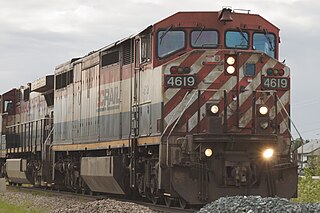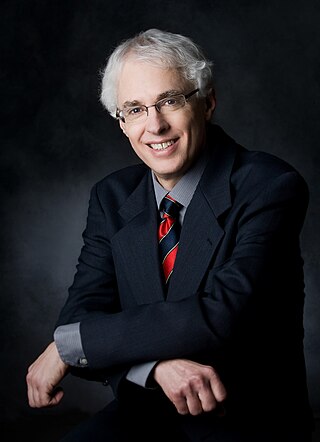This article needs additional citations for verification .(January 2023) |
Forest Renewal BC was a Crown corporation that delivered a variety of programs aimed at supporting the forests and forest industry of British Columbia.
This article needs additional citations for verification .(January 2023) |
Forest Renewal BC was a Crown corporation that delivered a variety of programs aimed at supporting the forests and forest industry of British Columbia.
From 2002 Victoria - B.C. Forests Minister Mike de Jong says Forest Renewal B.C. will be replaced by a forest investment account, with most of the work done by private contractors. [1] [2]
Forest Renewal BC was initiated as a rural development program for "forest dependent" regions and communities in British Columbia by the New Democratic government of the day. Forest industry pundits were critical of FRBC, at least in part because of the "super-stumpage" costs associated with it (stumpage is a tax on harvested timber paid by forest licensees to the Crown). With the election of the BC Liberals, FRBC was cut. Ambitious in scope, FRBC left a legacy with many communities in hinterland BC, though this legacy is hard to find.

British Columbia, commonly abbreviated as BC, is the westernmost province of Canada, situated between the Pacific Ocean and the Rocky Mountains. It has a diverse geography, with rugged landscapes that include rocky coastlines, sandy beaches, forests, lakes, mountains, inland deserts and grassy plains, and borders the province of Alberta to the east and the Yukon and Northwest Territories to the north. With an estimated population of 5.3 million as of 2022, it is Canada's third-most populous province. The capital of British Columbia is Victoria and its largest city is Vancouver. Vancouver is the third-largest metropolitan area in Canada; the 2021 census recorded 2.6 million people in Metro Vancouver.

Michael Franklin Harcourt, OC served as the 30th premier of British Columbia from 1991 to 1996, and before that as the 34th mayor of Vancouver, BC's largest city, from 1980 to 1986.
The British Columbia Hydro and Power Authority, operating as BC Hydro, is a Canadian electric utility in the province of British Columbia. It is the main electricity distributor, serving more than 4 million customers in most areas, with the exception of the City of New Westminster, where the city runs its own electrical department and portions of the West Kootenay, Okanagan, the Boundary Country and Similkameen regions, where FortisBC, a subsidiary of Fortis Inc. directly provides electric service to 213,000 customers and supplies municipally owned utilities in the same area. As a provincial Crown corporation, BC Hydro reports to the BC Ministry of Energy, Mines and Low Carbon Innovation, and is regulated by the British Columbia Utilities Commission (BCUC). Its mandate is to generate, purchase, distribute and sell electricity.

BC Rail is a railway in the Canadian province of British Columbia.
Corky Evans is a Canadian former provincial politician in British Columbia, Canada. He twice ran for the leadership of the New Democratic Party of British Columbia, placing second both times. In both cases, the party formed the government of British Columbia and its leader became Premier of British Columbia. He served in several cabinet ministries.
Stumpage is the price a private firm pays for the right to harvest timber from a given land base. It is paid to the current owner of the land. Historically, the price was determined on a basis of the number of trees harvested, or "per stump". Currently it is dictated by more standard measurements such as cubic metres, board feet, or tons. To determine stumpage, any stand that will be harvested by the firm is first assessed and appraised through processes aimed at finding the volume of timber that is to be harvested. A given stumpage rate, measured in $/volume, is then applied to the amount of timber to be harvested. The firm will then pay this price to the landowner.
Tumbler Ridge is a district municipality in the foothills of the B.C. Rockies in northeastern British Columbia, Canada, and a member municipality of the Peace River Regional District. With a population of 2,399 (2021) living in a townsite, the municipality encompasses an area of 1,558 km2 (602 sq mi) of mostly Crown land. The townsite is located near the confluence of the Murray River and Flatbed Creek and the intersection of Highway 52 and Highway 29 and includes the site of the Tumbler Ridge Secondary School and Tumbler Ridge Airport. It is part of the Peace River South provincial electoral district and the Prince George—Peace River—Northern Rockies federal riding.

Chetwynd is a district municipality located on the foothills of the Rocky Mountains in northeastern British Columbia, Canada. Situated on an ancient floodplain, it is the first town eastbound travellers encounter after emerging from the Rockies along Highway 97 and acts as the gateway to the Peace River Country. The town developed during the construction of infrastructure through the Rocky Mountains in the 1950s, and was used as a transshipment point during the construction of hydroelectric dams in the 1960s and 1970s and the new town of Tumbler Ridge in the early 1980s. Home to approximately 2,600 residents, the population has increased little if at all since the 1980s but is significantly younger than the provincial average.

Rathtrevor Beach Provincial Park is a provincial park in Parksville, British Columbia, Canada. Located at the east end of the town, the 347-hectare park features a two-kilometre long stretch of sandy beach, a stand of old-growth Douglas fir trees and 174 vehicle-accessible and 25 walk-in camping spaces. Popular year-round, the park is easily accessible from Highway 19. The sandy beach is the main attraction. At low tide, it stretches nearly a kilometre out into the Strait of Georgia.
The First Peoples’ Cultural Council (FPCC) is a First Nations governed Crown Corporation of the province of British Columbia, Canada. It is based in Brentwood Bay, British Columbia on Tsartlip First Nation. The organization was formerly known as the First Peoples' Heritage, Language and Culture Council, but shortened its name in 2012.

George Abbott is a former politician and cabinet minister for the Canadian province of British Columbia. Abbott was a BC Liberal Party Member of the Legislative Assembly of British Columbia representing the riding of Shuswap from 1996 to 2013. He served as a cabinet minister under premiers Gordon Campbell and Christy Clark.
The British Columbia Treaty Process (BCTP) is a land claims negotiation process started in 1993 to resolve outstanding issues, including claims to un-extinguished indigenous rights, with British Columbia's First Nations.

Linda Reid is a Canadian politician. She was Minister of Advanced Education and a Speaker of the Legislative Assembly of British Columbia. She was first elected in 1991 to represent the riding of Richmond East and was re-elected in 1996, 2001, 2005, 2009, 2013. Reid served as Minister of State for Childcare from June 2005 to June 2009 and the Minister of State for Early Childhood Development from June 2001 to June 2005. She also served as the Deputy Speaker from 2009 until 2013.

John Yap is a Canadian politician and former banker. He was elected as a Member of the Legislative Assembly of British Columbia to represent the riding of Richmond-Steveston in the 2005 provincial election. He was subsequently re-elected in the 2009 election and 2013 election. As a member of the BC Liberal Party, he served as the Minister of Advanced Education, Innovation, and Technology and as Minister Responsible for Multiculturalism, as well as Minister of State for Climate Action.
Crown corporations in Canada are government organizations with a mixture of commercial and public-policy objectives. They are directly and wholly owned by the Crown.

Andrew J. Petter is the chair of Innovate BC, a provincial Crown agency responsible for supporting innovation and growth in the technology sector in British Columbia.
The Forest Practices Board of British Columbia is an independent watchdog organization that advocates for sustainable forest and range practices in British Columbia, Canada. The agency investigates and publicizes issues concerning both government and the forest industry practices which affect forest health in the Province of British Columbia, Canada.

The 40th Parliament of British Columbia was in session from June 26, 2013, to April 11, 2017. It consisted of the Legislative Assembly of British Columbia, as elected by the general election of May 14, 2013, and the Queen represented by the Lieutenant-Governor Judith Guichon. That election unexpectedly returned the BC Liberal Party to another absolute majority government, their fourth consecutive government since 2001, this time with Christy Clark who had been premier since 2011. The BC New Democratic Party formed the official opposition under Adrian Dix and John Horgan who replaced Dix in the 2014 leadership election. The first member of the Legislative Assembly (MLA) from the Green Party of BC, Andrew J. Weaver served in this parliament, along with independent Vicki Huntington. Three MLAs resigned: Jenny Kwan and Douglas Horne who resigned to stand in a federal election, as well as Ben Stewart who resigned for the purpose of providing the Premier, who had lost her seat in the general election, with another opportunity to gain a seat. The by-elections to replace the resigned members Clark won Stewart's Kelowna riding, while Melanie Mark and Jodie Wickens replaced Kwan and Horne, respectively. The only members to leave their party, Marc Dalton briefly left the BC Liberals as he unsuccessfully sought the Conservative Party nomination in the federal election, and Pat Pimm left the BC Liberal Party just prior to being arrested.
The Ministry of Environment and Climate Change Strategy is a ministry of the government of British Columbia in Canada. The ministry is responsible for the effective protection, management and conservation of the province's natural resources. It is currently overseen by George Heyman.
British Columbia (B.C.) is the third largest Canadian province by population and fourth largest provincial economy. Like other provinces in the Canadian federation, B.C. consists of both private and public institutions. However, as Canada's westernmost province, located between the Pacific Ocean and the Rocky Mountains, B.C. has unique economic characteristics that distinguish it from much of the rest of Canada.
{{cite web}}: CS1 maint: archived copy as title (link)